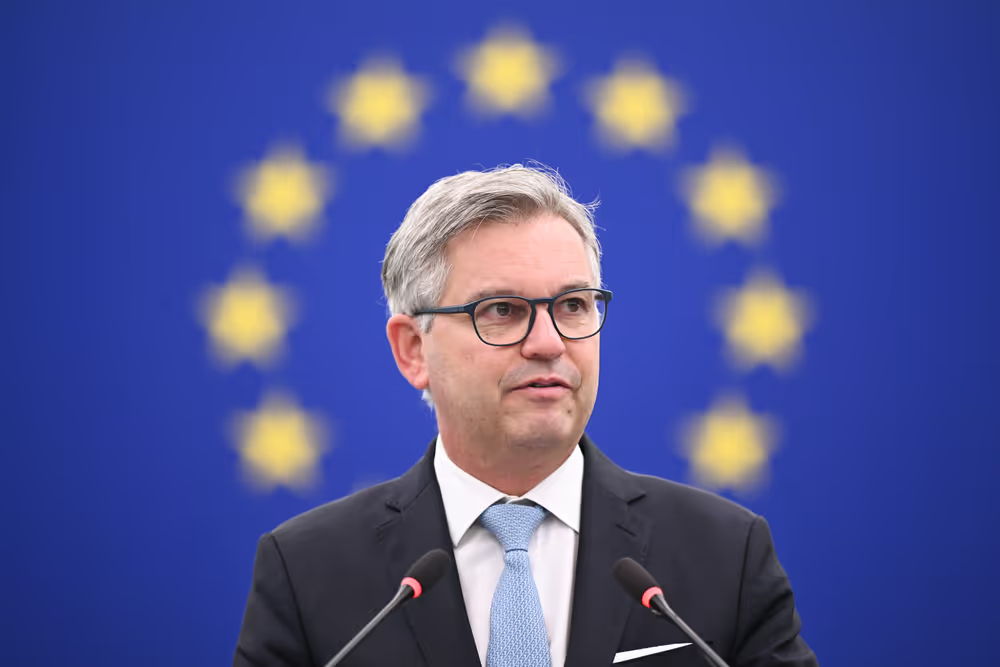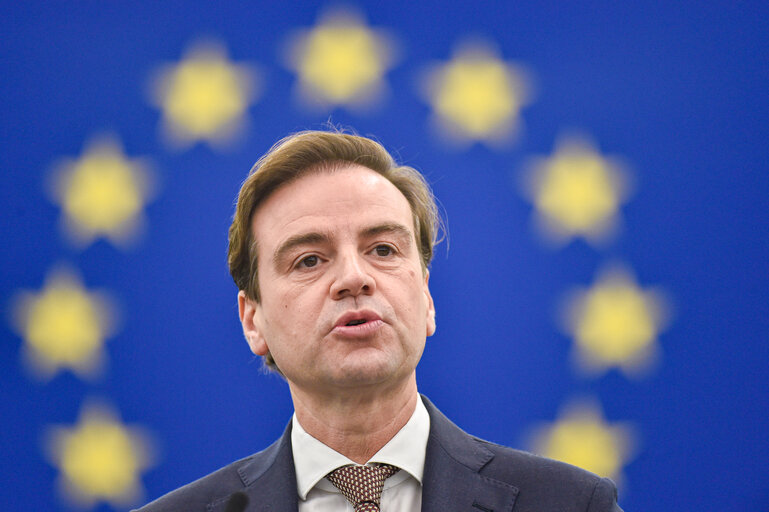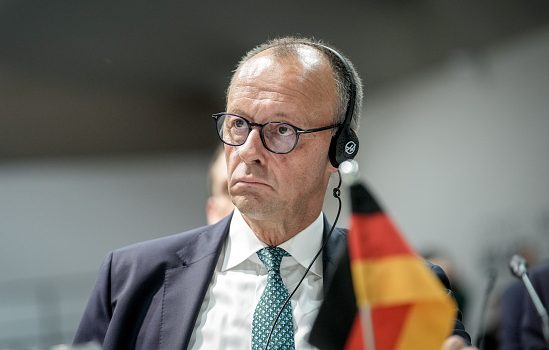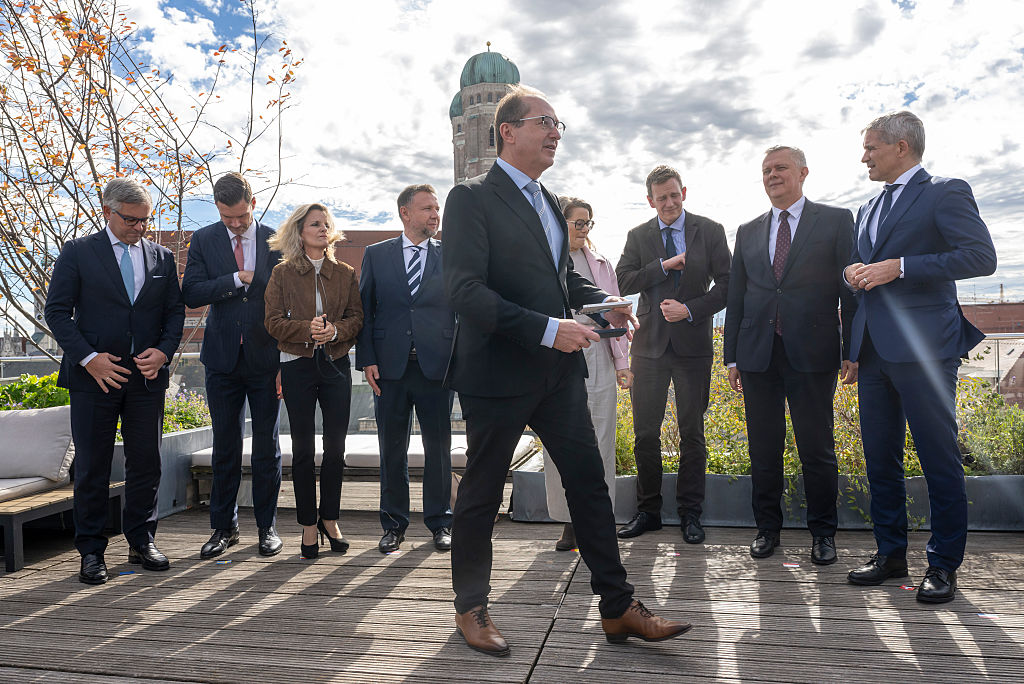EU countries clash over migration solidarity plan
The EU’s new migration plan is already running into resistance, as capitals clash over who should take in asylum seekers
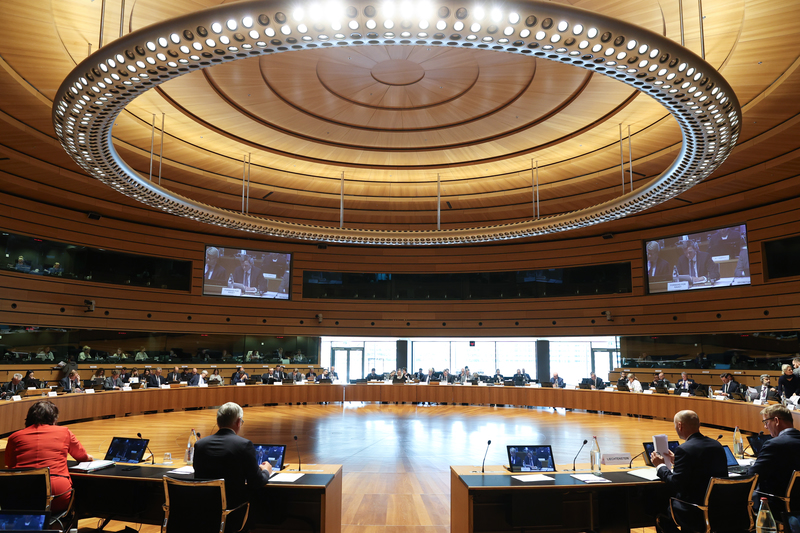
LUXEMBOURG – The EU’s new migration relocation plan, designed to prove the bloc can share responsibility fairly, is already running into resistance – as some capitals seem willing only to show solidarity with their wallets, or not at all.
This week, the European Commission was expected to publish its first assessment of which EU countries face the most migration pressure and who owes what under the new “solidarity pool.” The new mechanism determines whether countries must relocate asylum seekers, contribute with money, or provide other forms of support.
That makes the check-up a key test for the bloc’s flagship migration pact, meant to turn years of political wrangling into concrete burden-sharing policy.
But three officials with knowledge of the matter confirmed to Euractiv that the report’s publication has now been delayed.
Asked whether mounting opposition from member states risked derailing the plan before it even starts, EU migration chief Magnus Brunner dismissed the concern, saying it was not important whether it’s presented a few days earlier or later. “Of course there are some details we still have to discuss … we have to get it right”, he said at a press conference following Tuesday’s ministerial meeting in Luxembourg.
Split again
During Tuesday’s meeting, no delegation took the floor after the Commission presentation of its migration plan, one EU diplomat said, even though several ministers laid out their positions on arrival.
Belgium fired a few warning shots early in the day. “Every country must apply the Dublin rules,” Interior Minister Anneleen Van Bossuyt said — a thinly veiled jab at Italy and Greece.
Under that mechanism named after the Irish capital, the Commission can consider how countries apply the EU’s so-called Dublin regulation – which requires asylum seekers be returned to the first EU country they entered – when deciding who should receive solidarity support.
That could penalise southern frontline states, often the first ports of entry, that fail to carry out those returns.
“Solidarity must go hand in hand with responsibility,” Van Bossuyt added, noting Belgium will only contribute financially since its reception centres are already full. “We’ll pay — and with this money, structural solutions can be found.”
Other countries were just as blunt. “Obviously, we won’t accept migrants from other member states,” Finnish Interior Minister Mari Rantanen said.
Poland and Hungary have already ruled out participation, and the recent election of populist Andrej Babiš in Czechia risks adding another skeptical voice to the mix.
Mutual mistrust
Ministers also clashed over the mutual recognition of return decisions – a key rule in the migration pact that would require one EU country to enforce another’s deportation order.
France, Germany and Belgium all warned the measure could prove overly burdensome, with Belgium opposing the idea of making it mandatory. “For Belgium, it shouldn’t be mandatory,” Van Bossuyt said. “We already suffer a disproportionate burden because of secondary movements. We would have the obligation to do the effective returns – and that’s why it’s important to avoid perverse effects.”
Frontline state Spain pushed back. “We would like mutual recognition to be mandatory, because that is the real foundation of the area of justice and freedom,” Spanish Interior Minister Fernando Grande-Marlaska said. “A decision issued by an authority in one country should have the same value in another.”
A leaked Danish presidency compromise, seen by Euractiv last month, shows that the binding application of the mutual recognition rule would be delayed until three years after the migration pact enters into force in 2026.
Several provisions that created administrative burdens have been softened or scrapped, including by making the use of a European Return Order optional.
Brunner struck an optimistic tone, saying that “more work is needed to find a solution on the issue of mutual recognition,” but that a general approach “should be feasible” by December.
Syria returns back on the table
Ministers also discussed whether conditions now allow for the return — or even forced deportation — of certain categories of Syrian nationals, according to a discussion paper seen by Euractiv last week.
“There was broad agreement here in Luxembourg that we must begin with returns to Syria,” German Interior Minister Alexander Dobrindt said, adding that “around one and a half million Syrians have already returned from neighbouring states to their homeland. Now it is a matter of ensuring that the EU, that Europe, also makes sure that returns are possible.”
(mm, jp)




